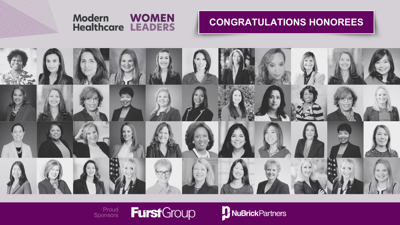Thirty years ago, Bruce Siegel had what he calls “a rude awakening,” running headlong into the perplexing spider web of health disparities as a young MD. It’s been something that he’s spent his entire career trying to solve, albeit not with a stethoscope.
Classic content: One in a series of interviews with Modern Healthcare's Top 25 Minority Executives in Healthcare for 2016.
Thirty years ago, Bruce Siegel had what he calls “a rude awakening,” running headlong into the perplexing spider web of health disparities as a young MD. It’s been something that he’s spent his entire career trying to solve, albeit not with a stethoscope.
“I went off to medical school and started my internship, and I was stunned by what I encountered,” says Siegel, now president and CEO of America’s Essential Hospitals. “I worked in the clinic at our hospital, and it was just a tidal wave of diabetes, heart disease and lung cancer. Most of it was preventable. And the other thing I noticed was that it was mostly affecting communities of color.”
It was a frustrating experience, one that led Siegel to pursue a master’s in public health at Johns Hopkins University and try to find public-policy solutions to the nagging issues he saw as a physician. “I felt like I was running an assembly line that never ended. I’d see 200 people with these problems. I’d send them back out and they’d be back a month later.”
The New Jersey Department of Health helped pay for Siegel’s education at Hopkins, so he owed them some time when he graduated. He did so well that he eventually became a very young state commissioner of health, then parlayed that experience into running New York City’s health system and a Tampa, Fla., hospital. His early years in leadership after being a clinician were rocky, he admits.
“It was a crucible in many ways,” he says. “Sometimes, it was very uncomfortable and I was probably in over my head at points. But it’s where I began to learn that leadership is about giving people space. I really think a leader’s job is to create a safe space for talented people and tools to help them move forward. If I’m giving orders, then I’m failing.”
Siegel joined America’s Essential Hospitals in 2010 after eight years as a professor and the director of the Center for Health Care Quality at George Washington University. But at each step of the way, his thoughts went back to those diverse patients in the clinic who found little hope in healthcare. “I had so many patients of color for whom the system simply wasn’t working, but I didn’t understand why.”
In recent years, Siegel has begun to see a change as he leads the nation’s essential hospitals, his association’s term for public and other non-profit hospitals with a safety-net role. The association’s members often are a driving force, he says.
“It’s great to be in the company of change agents,” he says. “Our members have leaders who care about these problems and are working to fix them. Equity is now front and center in the American agenda. We’re not there yet, but at least today we have the tools.”
At times, it’s still a tough slog, he notes. One of the must-haves on the road to equity is diverse leadership, and the effort to improve that is stalled. Medical schools are failing to enroll minority communities, and boards have been far too quiet on the lack of diversity, Siegel says.
“I don’t think our boards of directors are demanding this,” he says. “They need to be unequivocal that this is an expectation, not just a nice thing to do. But I don’t think our hospitals are going to look diverse in the C-suite if our boards don’t.”
Lack of diversity, Siegel says, is short-sighted because it is harmful to patients and harmful to an organization’s bottom line.
“The slow walk on diversity is just bad business,” he says. “We’re not going to succeed if our leaders don’t fully understand the lives of our community and their priorities.”
America’s Essential Hospitals is working with the Robert Wood Johnson Foundation on a population health project, and Siegel sees a disconnect between some healthcare executives and the communities they try to serve. “I’ve been in communities where, if you ask the CEO, he or she will talk about chronic disease management as their main concern on population health. But if you ask the people, they’ll say their most pressing need is a safe street for them to walk on, and safe playgrounds for their children. We’re not going to get to population health without addressing what people think of as health.”
In the same way, he adds, population health can’t be attained if you weaken the academic medical centers which comprise much of the association’s membership. The AMCs, with their three-legged stool of clinical care, education and research, sometimes feel the ACA is applied like a wildly swung ax, Siegel says.
“These are places in America that do what no one else does,” he says. “They attract the sickest people who have the greatest social and economic challenges. Home may be a homeless shelter. English may not be their first language. These patients may have a harder time navigating the healthcare system, and they may be readmitted through no fault of the hospital.”
Siegel’s association is pushing Congress for a risk adjustment for these hospitals, which, he notes, had an aggregate operating margin slightly in the red for 2014. Compare that to, say, the pharma industry, which banks about 20 percent profits each year.
“To me, the future of healthcare is that hospitals will be at risk for dollars they get. I accept that,” Siegel says. “We’ll do everything we can to make that better, but we also need the regulators and the payers to do their part.”
The challenges of America’s Essential Hospitals’ members are personal to Siegel. He and his sister were both born in a public hospital. Their mom emigrated to the U.S. from Haiti. “My family very much depended on a safety net when they came to America. So these issues are near and dear to me and my loved ones.”


